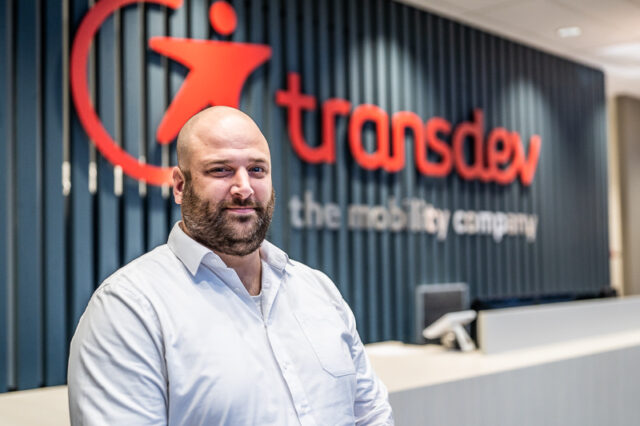In the interview series ‘This is what I do’ from Transdev Netherlands we highlight the work of our colleagues in different parts of the organization and how they contribute to the Group purpose of serving the common good. This time we are featuring Marc Dekker, Operational Procurement Officer in the Netherlands.
In what part of our company do you work and what is your role?
I work for the Procurement Department. We help the organization with finding the right suppliers. Let me just say right away: we don’t decide whether you can buy something. You as an applicant decide yourself, based on your own budget and approval from your manager. But we do have a role in deciding where to buy goods and services.
My responsibility is to manage the procurement of all commonly used goods and services, such as office supplies. Not necessarily the things that cost a lot of money, but rather where the complexity lies precisely in the great diversity and quantity. In doing so, we want to keep costs as low as possible, partly by increasing efficiency.
Contract management is something I also do. I make sure that all procurement contracts are entered into the procurement software, so that everything is in there correctly with the right documentation and attachments.
What does your average work week look like?
That varies. For the most part, I support the organization with the procurement software, as I do the day-to-day management. So, people come to me with user questions. Specifically, I do the requests and purchase orders.
I am also responsible for creating reports to provide the organization with steering information. Both risk and control, but also for CSR and PSO standards or spend analysis. In short, the latter means that I look at how we can reduce the number of suppliers.
So why do we want to reduce the number of suppliers?
This is important because, on the one hand, we want to do business as much as possible with existing suppliers and on contracts. That is because we get better purchasing conditions. On the other hand, we save time and thus money if we work with suppliers we already know. After all, managing suppliers is costly, especially with increasingly stringent compliance requirements.
What do you like most about your job?
To be in touch with the organization for sure. It is quite intensive contact – after all, I am the problem solver for everything with the purchasing software and everything at procurement level. Do colleagues need something? Then I look for the best supplier at a good price. »
I also enjoy the procurement work itself. Identifying the needs, inviting suppliers, entering into negotiations, negotiating the best terms or price. Putting everything on paper properly and then finalizing it neatly so that the applicant is happy.
The trick every time is to provide customization to the user on the one hand, because every user is different. And on the other hand, we want to standardize as much as possible to keep our operational costs low and meet compliance requirements.
What skills do you need in order to do this job?
You need to be able to listen carefully to the needs of the organization and translate this into the request to the supplier, so that nothing is left out. You also have to make sure it gets into the contracts properly. You have the negotiations, of course, so you have to stand firm and be able to challenge colleagues. Also, you have to be able to make good calculations: where do we make a profit? »
What are your goals?
For myself, that’ s drastically reducing the small suppliers. The target is to shrink the number of suppliers by 20 per cent. This is why, for example, we work with platforms like Archipel for training. We then have one supplier with a large offer. That is efficient.
And as for my entire team, we want to help the organization achieve its goals. Whether that is in winning a tender, on new payment methods or saving because of lost sales.
If you could change one thing about your job, what would it be?
I would change two things if I could: not only keep concessions, but also win them so that we get a wider line-up again.
Also, I want to make sure the company adheres more to processes. That saves a lot of frustration among people and takes less time. The process is also there for a reason. It’s important that people know where to look for information. The intranet has all the information, and you can ask if you can’t find something.
What makes you proud?
That our company puts people first and makes sure staff members feel good. If you have a problem, you walk right into the CEO’s office. With my supervisor, I have a conversation every fortnight about how things are going personally and business-wise, and where support is needed. People help each other.

